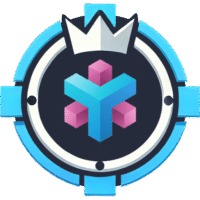Proton Takes Legal Action Against Apple Over App Store Policies
Proton, the company renowned for its privacy-centric applications like ProtonMail and ProtonVPN, has initiated legal proceedings against Apple, alleging anticompetitive practices and unfair fees within the App Store ecosystem. This move underscores growing tensions between app developers and platform owners regarding the control and revenue distribution in the mobile app market.
Anticompetitive Conduct Allegations
Proton’s lawsuit centers on the claim that Apple’s App Store policies stifle competition and create an uneven playing field. They assert that Apple’s control over app distribution on iOS devices, combined with mandatory use of its payment system and associated fees, harm developers and limit consumer choice.
Key Points of Contention
- App Store Fees: Proton challenges the 30% commission Apple charges for in-app purchases, arguing that these fees are excessive and unsustainable for many developers. This policy significantly impacts revenue models, especially for subscription-based services. Learn more about Apple’s App Store Review Guidelines.
- Antitrust Concerns: The lawsuit raises concerns about Apple’s potential abuse of its market dominance. By controlling both the hardware (iOS devices) and the software distribution platform (App Store), Apple allegedly leverages its position to favor its own services and disadvantage competitors.
- Level Playing Field: Proton argues that all apps should have a fair opportunity to reach users without facing unreasonable restrictions or financial burdens imposed by the platform owner.
Impact on Developers and Users
The outcome of this legal battle could have significant implications for the app development community and consumers alike. If Proton succeeds, it could lead to changes in Apple’s App Store policies, potentially reducing fees and increasing competition. This could empower developers to innovate and offer more competitive pricing, ultimately benefiting users.
Apple’s Response
Apple has yet to issue a formal statement in response to the lawsuit. However, Apple typically defends its App Store policies by emphasizing the value it provides to developers, including access to a vast user base, secure payment processing, and robust app review processes to ensure quality and security.
Broader Implications for the Tech Industry
Proton’s lawsuit is part of a broader trend of increased scrutiny of the power and practices of major tech platforms. Regulatory bodies and lawmakers around the world are examining potential antitrust violations and considering measures to promote competition and protect consumers. This action follows similar concerns raised by other companies and organizations regarding App Store policies. For instance, the Federal Trade Commission (FTC) has been actively investigating similar issues.













